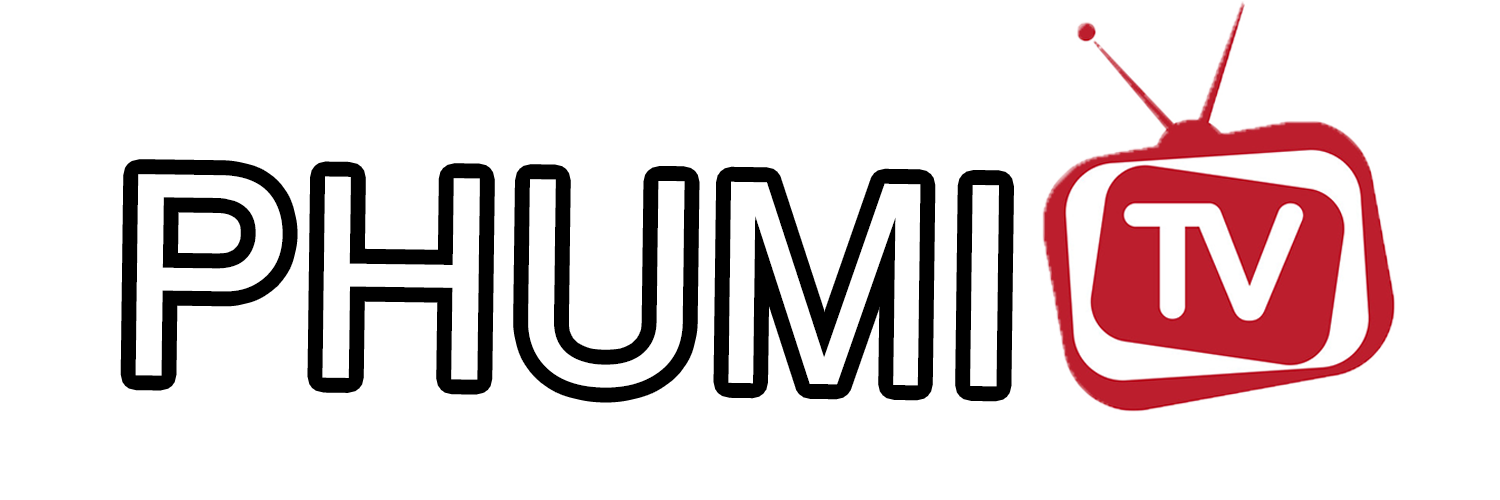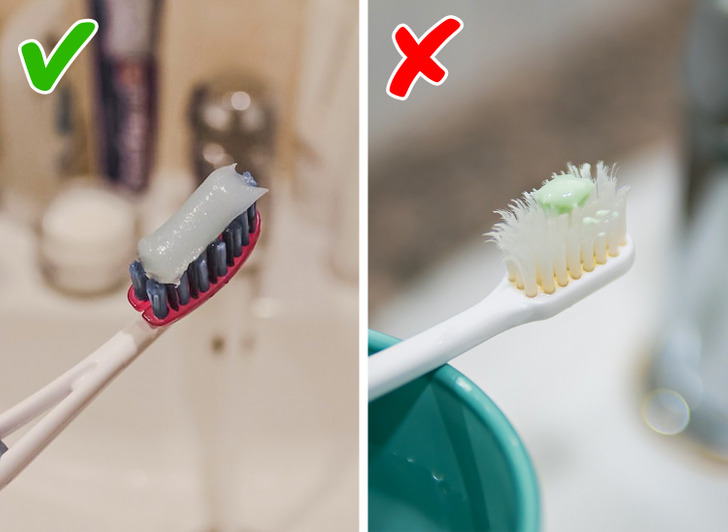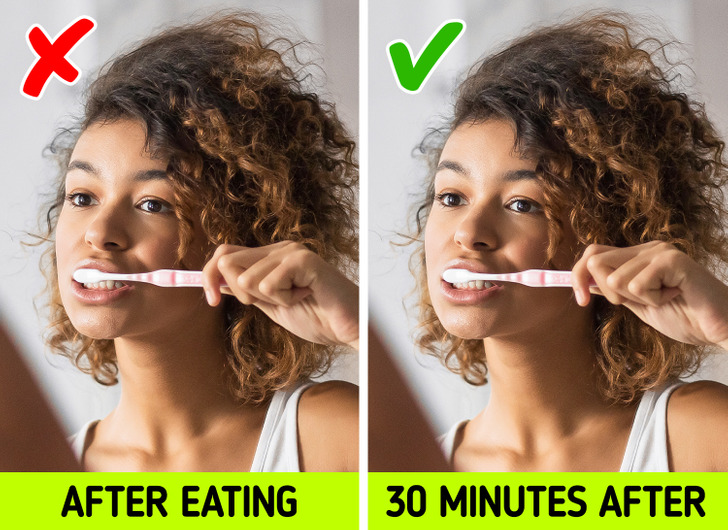1. Following your brushing, you rinse your mouth.
Despite the fact that you might be accustomed to rinsing your mouth immediately after brushing your teeth, doing so can actually reduce the effectiveness of the brushing. The strong fluoride in the toothpaste is diluted by water, which may prevent you from receiving all of its advantages. To keep your enamel properly maintained, use a fluoride mouthwash if you still feel the urge to rinse your mouth out of habit.
2. You don't have your tongue brushed.
3. You floss excessively.
Even while flossing is an important component of your dental hygiene regimen and is important for your gums, you shouldn't go overboard. As hazardous germs require 4 to 12 hours to form, there is no need to floss more than once each day. While using floss properly might help to avoid gum disease, using it incorrectly could have the opposite effect and even harm your gums.
4. You continue using the same toothbrush.
Even though it's simple to get connected to your preferred old toothbrush, employing it for an extended period of time might harm your gums and cause cavities. Every time you use the same toothbrush, you're reintroducing the same germs to your body since there are always some food particles stuck in the bristles. Additionally, if you leave your toothbrush in a damp bathroom, it may begin to grow mold. As a result, you may want to replace your toothbrush immediately away if you see any black spots on the bristles.
5. You don't change toothpaste brands.
It may be tempting to buy a lot of toothpaste when you finally discover one that works wonderfully for your teeth. However, the oral microbes might adapt to a particular toothpaste, decreasing the effectiveness of brushing. It's best to switch up your toothpaste every two to three months, and some dentists even advocate using a different brand in the morning and at night.
6. Right after eating, you clean your teeth.
While cleaning your teeth right after a meal might actually damage your enamel, doing so right after eating can help keep hazardous germs away. To maintain the health of your pearly whites, it is advised to wait 30 to 60 minutes after eating before cleaning your teeth.






